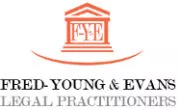By an Originating Summons dated 10th July 2020, the Plaintiff commenced Suit No. FHC/ABJ/CS/755/2020; Emmanuel Ekpenyong Esq V. President, Federal Republic of Nigeria and Attorney-General and Minister of Justice of the Federation at the Federal High Court, Abuja Division for the Court to determine the extent of the fundamental Right to Life enshrined in Section 33 (1) of the Constitution of the Federal Republic of Nigeria, 1999 (as amended) (“the Constitution”) in light of the daily reports and pictorial evidence of extra-judicial killings of Nigerians especially by non-State actors.
In support of his case, the Plaintiff contended that in light of Section 46 of the Constitution and the Supreme Court case in Fawehinmi v President, FRN (2007) 14 NWLR (Pt. 1054) 275 which empowers any citizen to commence an action for the interpretation of the provisions of the Constitution, he has locus standi to institute the suit and urge the Court to hold that his fundamental Right to Life under Section 33 (1) of the Constitution means the protection of his life beyond mere physical and animal existence and extends to the right to live a meaningful, complete and dignified life. The Plaintiff further urged the Court to hold that his fundamental Right to Life prohibits any unlawful acts of omission or commission by the Nigerian State, Nigerian Police, other law enforcement agents and private individuals which are capable of terminating his life.
The Plaintiff argued that his fundamental Right to Life extends to his full residence rights, right to livelihood and sustenance, right to equal opportunities, right to education, right to a decent environment, right to affordable, decent and prompt medical care, right to adequate security and right to an identity. The Plaintiff urged the Court to hold that his fundamental Right to Life extends to other fundamental human rights enshrined in Chapter IV of the Constitution. The Plaintiff urged the Court to grant mandatory injunctive reliefs to compel the Defendants to protect his life and that of other Nigerians.
The Defendants filed a Counter-Affidavit dated 7th October 2020 in opposition to the Plaintiff's Originating Summons and contended that the Plaintiff's supporting affidavit offends the provisions of Section 115 (1) of the Evidence Act, 2011. The Defendants contended that the Plaintiff has not made out a case for the grant of the reliefs sought in his originating summons. The Defendants insisted that the Plaintiff did not have locus standi to institute the suit because he has not proven sufficient interest in the subject matter of the suit. The Defendants concluded that there is no evidence that the Plaintiff was ever arrested, tortured or his life threatened by any agent of the Defendants and as such there is no merit in the suit.
In response to the legal issues raised in the Defendants' Counter-Affidavit, the Plaintiff filed a Reply on Points of Law dated 19th October 2020 and contended amongst others, that the provisions of Section 33 (1) of the Constitution stated in the Affidavit in Support of the Originating Summons are statement of legal facts which is within the knowledge of the Court. The facts are not legal conclusions as the Defendants want the Court to believe. The Plaintiff further contended that the provision of Section 46 of the Constitution empowers any citizen whose fundamental rights has been, is being or likely to be contravened to apply to Court for redress. Moreover, the ratio in Fawehinmi v President, FRN (supra), empowers the Plaintiff as a Nigerian citizen to commence an action for the interpretation of a constitutional provision.
In its Judgment dated 6th May 2022, the Federal High Court, Abuja Division, per N.E Maha J, held that certain depositions in the Affidavit in Support of the Originating Summons contains legal arguments, prayers, conclusions and thus extraneous matters. The Court held that since there is less than nothing supporting the Originating Summons there is no cause of action to sustain this suit against the Defendants.
The Court found that it is the duty of the Court to decide a suit based on real facts and not based on a mirage to deceive the Defendants and the Courts as to the reality of the cause of action. The Court held that the Plaintiff has no locus standi to institute the suit because there is nowhere in the Affidavit in Support where it is claimed that the Plaintiff's right has been trampled or likely to be trampled.
The Court concluded that the Plaintiff has not discharged the burden of proof on him and dismissed the suit for lack of reasonable cause of action against the Defendants. A cost of N 100, 000 was awarded to the Defendants against the Plaintiff.
The content of this article is intended to provide a general guide to the subject matter. Specialist advice should be sought about your specific circumstances.

